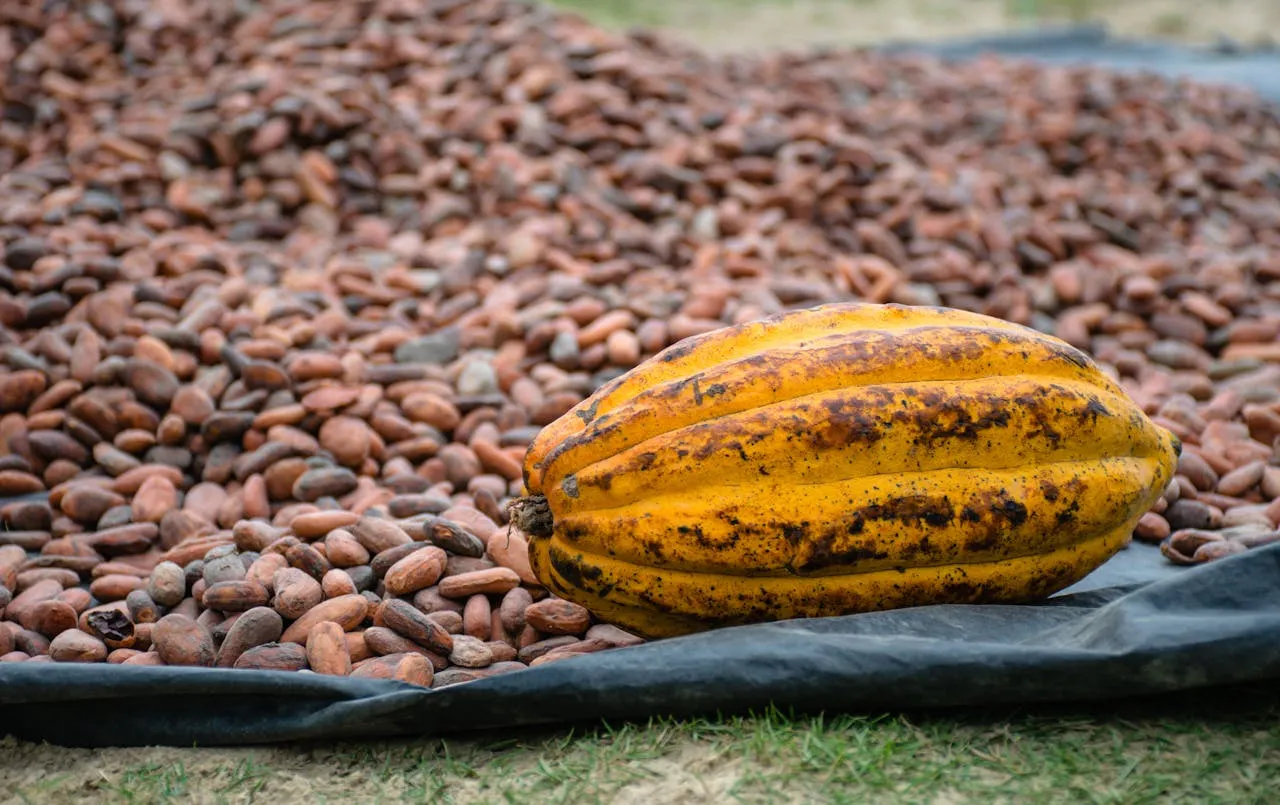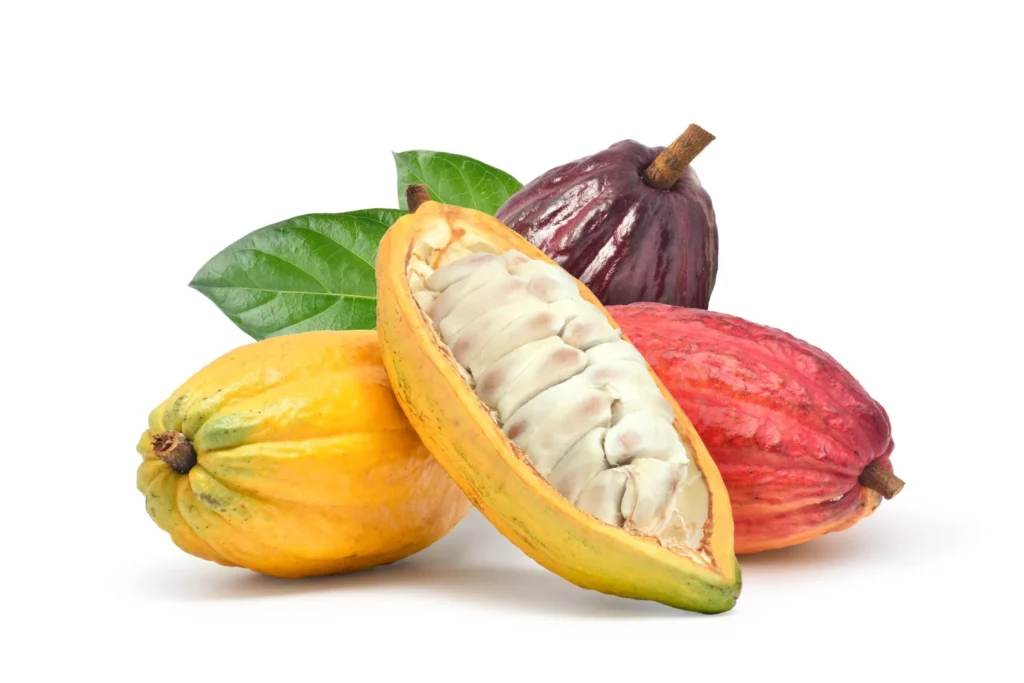
Barry Callebaut, the world’s leading manufacturer of high-quality chocolate and cocoa products, and Nestlé, a global powerhouse in nutrition, health, and wellness, have announced a transformative partnership aimed at achieving Net Zero cocoa production in Brazil. The initiative represents a bold step forward in addressing the environmental challenges associated with cocoa farming, while also strengthening the economic resilience of farmers and promoting sustainable agricultural practices.
At the heart of this alliance is an ambitious five-year agroforestry planting initiative that will result in the establishment of 6,215 hectares of agroforestry systems and the planting of an impressive 7.7 million trees—comprising both cocoa and non-cocoa species. These efforts are part of a broader, long-term sustainability vision that includes a groundbreaking 25-year commitment, with the possibility of a 20-year renewal. The project is designed not only to support reforestation and biodiversity but also to generate tangible carbon benefits over the next two decades, aligning with the companies’ climate targets and contributing significantly to carbon sequestration goals.
A Strategic Collaboration for Sustainable Cocoa in Brazil
This initiative is deeply aligned with the sustainability roadmaps of both Barry Callebaut and Nestlé, both of which have publicly committed to achieving Net Zero emissions in the coming decades. By joining forces, the two companies aim to transform the cocoa value chain in Brazil into a model of climate-smart agriculture. This entails empowering a new generation of cocoa farmers while supporting existing producers to scale up their operations in ways that are environmentally responsible and economically viable.
One of the key pillars of the initiative is farmer empowerment. The program is designed to engage entrepreneurial farmers—many of whom are new to cocoa farming—as well as those already active in the sector. These farmers will be given the tools, knowledge, and financial resources necessary to adopt sustainable practices, expand cocoa cultivation responsibly, and restore degraded land through agroforestry.
To meet these objectives, the initiative includes three distinct projects, each tailored to the needs and conditions of different farmer segments. These projects will help participants navigate challenges such as land management, market access, and the implementation of regenerative agricultural techniques. Barry Callebaut’s deep-rooted expertise in seedling production will play a crucial role in these efforts. The company is currently operating a large-scale nursery project that is producing over 6 million cocoa seedlings, a foundational component of the planting initiative.
Building on a Proven Model from West Africa
This is not the first time Barry Callebaut and Nestlé have collaborated on large-scale agroforestry projects. The companies are already working together in Côte d’Ivoire, where they are implementing an agroforestry program covering 11,500 hectares. This initiative is expected to benefit more than 6,000 local farmers through payments for ecosystem services (PES), while sequestering approximately 1.3 million tons of CO₂ equivalent over 25 years. These results underscore the potential of similar models to be successfully adapted and scaled in other cocoa-growing regions like Brazil.
With this new Brazilian initiative, Barry Callebaut and Nestlé are extending their proven partnership into a new geographical and ecological context, leveraging their experience in West Africa to inform strategies in Latin America. The companies’ decision to scale up this type of collaboration signals their shared belief that long-term, system-level change is necessary to secure the future of cocoa production globally.

A Shared Vision for Climate-Positive Growth
Tilmann Silber, Head of Net Zero at Barry Callebaut, emphasized the importance of cross-sector collaboration in advancing sustainability goals. “This program is a testament to our commitment to delivering the world’s best chocolate solutions and services while driving positive change in the cocoa industry,” said Silber. “With the announcement of our ambitious Net Zero targets in 2024, we are dedicated to working alongside Nestlé on this industry-leading project. By collaborating with our customers in this way, we can accelerate our journey toward these targets, fostering a more sustainable future for cocoa farmers, consumers, and the entire chocolate ecosystem.”
Barbara Sapunar, Executive Director of Digital Transformation and ESG at Nestlé Brazil, echoed these sentiments. “This collaboration with Barry Callebaut is another significant step towards realizing our shared vision of a sustainable cocoa supply chain,” she said. “By empowering farmers and incentivizing climate-positive practices, we can collectively contribute to a greener future.”
The project is particularly timely as climate change continues to pose serious threats to agricultural systems worldwide. Rising temperatures, unpredictable rainfall, and soil degradation are already affecting cocoa yields in major producing regions. This initiative aims to address these risks head-on by implementing resilient land-use systems that combine cocoa production with native shade trees and other complementary species, thus enhancing soil fertility, promoting biodiversity, and creating carbon sinks.
A Holistic Approach to Agroforestry and Carbon Sequestration
In addition to tree planting and farmer engagement, the initiative will focus on comprehensive monitoring and verification systems to track environmental and social impacts. By applying digital tools, satellite imagery, and field-level data collection, the project will ensure transparency and accountability in meeting its carbon, biodiversity, and livelihood objectives. These tools will also enable the companies to quantify carbon sequestration benefits over time and report on progress toward Net Zero targets.
Agroforestry plays a critical role in this approach. By integrating cocoa trees with other beneficial species such as fruit trees, nitrogen-fixing plants, and timber species, farmers can create diversified production systems that are both ecologically and economically sustainable. These systems reduce the need for chemical inputs, mitigate erosion, and provide farmers with multiple sources of income, increasing their resilience to market and climate shocks.
Shaping the Future of Cocoa Farming
The long-term nature of this partnership—spanning at least 25 years, with potential renewal for another two decades—demonstrates a shared commitment to systemic change. Rather than offering short-term solutions or isolated projects, Barry Callebaut and Nestlé are investing in deep-rooted transformation, with the ultimate goal of reshaping how cocoa is grown, traded, and consumed.
This initiative also contributes to broader global goals, including the United Nations Sustainable Development Goals (SDGs), particularly those related to climate action (SDG 13), responsible consumption and production (SDG 12), and life on land (SDG 15). Through their joint actions in Brazil, the companies are proving that the private sector can play a catalytic role in creating regenerative agricultural systems that benefit both people and the planet.
As the global demand for sustainably sourced chocolate continues to grow, the Barry Callebaut-Nestlé partnership in Brazil is likely to become a benchmark for the future of ethical, climate-resilient cocoa production.





